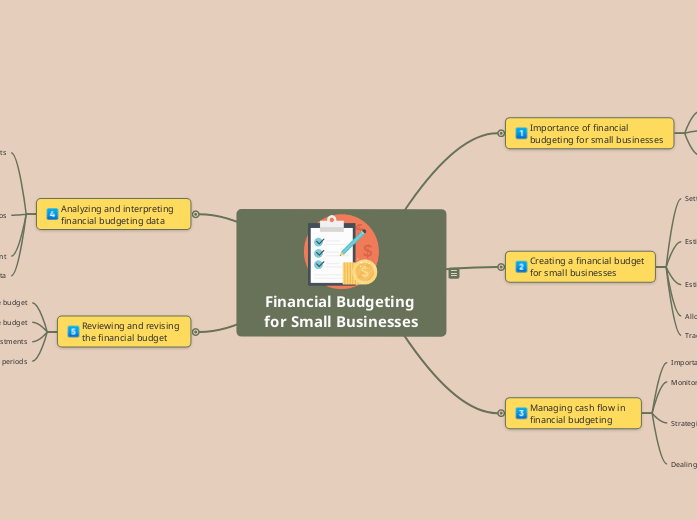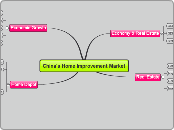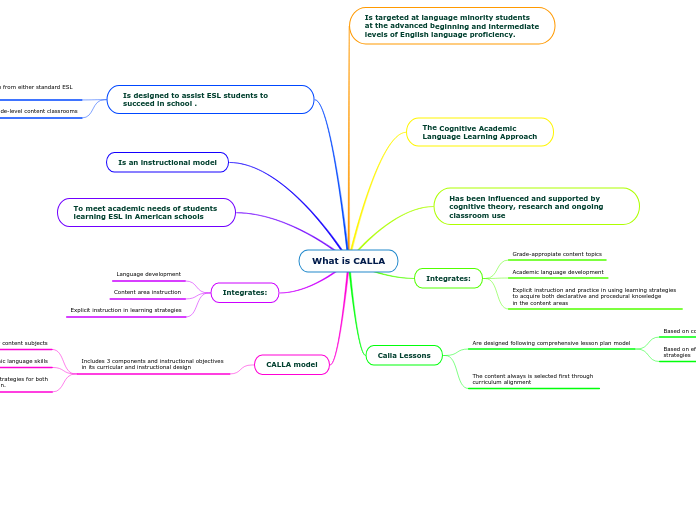OPTIMIZING REAL ESTATE INVESTMENTS THROUGH OPERATIONS EXCELLENCE
Welcome to this dynamic presentation designed to help you get started on the journey to profitable real estate investments. You will find out about the main stages of a successful investment and the considerations you may take into account when making important decisions. A variety of articles, videos and other sources will get you on the right track to the best practices in the sector and will help you optimize your enterprise through operational excellence.
“Real estate is an imperishable asset, ever increasing in value. It is the most solid security that human ingenuity has devised. It is the basis of all security and about the only indestructible security.”
Russell Sage, American Financier and Politician
By Juan PINZON, Imba, Section 5
7.) TAKEAWAYS
“In the real estate business, you learn more about people, and you learn more about community issues, you learn more about life, you learn more about the impact of government, probably than any other profession that I know of.”
Johnny Isakson, U.S. senator
5.) FINANCIALS & LEGAL
"A property or purchase can be a fantastic deal for one person and a horrible mistake for another. Crunching the numbers is essential, but you’ve got to take the steps to ensure it fits into your portfolio and life plans.”
Adam Baker – the popular Man vs debt blogger.
Identifying principal expenses
It is said that "more millionaires have earned their first million from real estate development than any other industry", nevertheless a precise analysis of expenses is essential when determining profitability levels, reducing costs, etc.
Taxes
Maximizing tax advantages is the main objective of a specific legal structure. However, a zero tax regime is chimerical as there are property taxes, profit taxes, taxation on capital gains...
Legal set up
Insurance coverage
Insurance concerns mainly the rentals as they're more susceptible of litigation due to unsafe conditions or accidents. The insurance coverage would stipulate what is the responsibility of the renter and what is the responsability of the insurance.
Building permits
Zoning and building permits are very often administrative hassles for real estate investments. They could take longer than thought and might sharply decide on the feasibility of a project. In this sense building inspectors should be in the entrepreneurs radar of key stakeholders.
Ideal structure
Setting a different legal structure to handle the business is the most adequate solution as this allows to separate liabilities and it often provides a more competitive fiscal status. This legal setup would require the assistance of a real estate attorney, a financial adviser and an accountant for annual obligations. These expenses have to be accounted for when analyzing the business profitability.
Funding
No matter which funding combination suits you better it is always suggested to secure an extra capital to do the necessary refurbishment of a property before sale or to increase the monthly rent.
Lending
Wealthy partner
Own money
4.) OPERATIONS JOURNEY
When having a real estate activity, whether for renting or sale, a large number of operations are needed to deliver the final product or service and ensure profitability. These activities are not always efficient generating waste. However some real estate best practices could serve as inspiration.
Best practices for operational efficiency
You will find here a couple of examples of lean techniques in real estate.
Automated rent collection
- Automated rent policy(automatically debiting the client's account) reduces transportation and risks of late payment.
Advertising ahead of time
- To reduce the cost and negative impact of vacancies, rental advertising could be done 45 to 60 days prior the end of the lease.
Frequent inspections
- Treating problems before they become a real urgency. Through this regular visits prevention is the main goal.
Standard materials
- Standardize the materials used in all properties such as paint color, flooring...
Apartment showing
- Providing virtual visit options.
- Scheduling one apartment showing and have all applicants attend at the same time
Real estate waste
See here some salient examples of waste created during real estate operations.
Missing a step/part when installing a product
Using a specialized contractor for something a handyman can do
Not managing a project properly leading to contractors waiting on other contractors
Tools not organized to be found easily
Having more material than you need for a renovation
Multiple trips to get materials
Building a detailed set of activities
This process analysis should include every activity necessary to create the product and service to deliver to the customer. Such a detailed flow diagram will a allow to identify potential bottlenecks, measure performance and take more informed management decisions.
3.) SELECTING YOUR RAW MATERIAL
Choosing the appropriate real estate assets to work with is probably one of the key factors of success. Besides having the assistance of experienced professionals the real estate entrepreneur should follow the best practices possible as the buying procedure could be complex (see video link on the right showing the complexity and diversity of participants )
The "100/30/3/1" rule
The "one deal after a 100 deals" is a concept used in real estate investment and defined as follows "looking for real estate investing you will look at 100 deals or properties, from there you will find 10 potential deals that will make money and work, from those 10 deals you will put offers on 3 of them, out of those 3 offers 1 will be accepted". Such volume would require to be efficiency oriented from the beginning.
A humble start
In order to reduce risks when launching this new activity, production at a small scale is what is suggested by specialists. However this doesn't mean starting with one small unit as sometimes bigger investments also result in bigger profits. Finding a investment partner could in that sense be considered. Other alternative would be to participate in a crowdfunding campaign.
A testing alternative : crowdfunding campaing
Even though a crowdfunding investment does not demand entrepreneurial action, it will allow you to get closer to the market and its specificity while making a minimum investment. Play the video on the right and have a look at the link to get a better idea on how this works.
2.) ASSEMBLE A TEAM OF PROFESIONNALS
Even if tempted to keep all eventual profit to ourselves, when starting in this business and because real estate is quite a local activity, having access to a reliable realtor, contractor, lawyer, accountant... would increase the probability of success. The first thing that you will want to avoid is to end up with a mediocre asset in a declining neighborhood.
Coordination : Lean management
The real estate entrepreneur is an executive coordinating multiple interventions from a great variaty of actors who do not possess the same performance criteria. Detailed planning is necessary to ensure harmonious interventions and avoid disputes leading to a break down of the entire project. In that context the Hoshin Kanri concept of long term strategy and management is pretty useful.
HOSHIN KANRI : pulling in the same direction
Supply : Lean supplier development
The intervention of multiple actors to help spot the appropriate assets, renovate them, sell them or rent them, makes it critical to have reliable relations with these "suppliers" who have to move quickly and operate effectively. Having partnership relations beyond contractual obligations would avoid for instance the typical waste in real estate projects: inappropriate renovation and additional delays!!
1.) INITIAL OBJECTIVES
Defining the main objectives when launching a real estate investment will determine the details of the business model: whether a high turnaround is privileged over time appreciation. This single decision will help identify the optimal tools for success. Please click on the video here attached for more information (Until minute 1’22).
Long-haul mode
Betting on the long term is quite different from the level of activity demanded by the flipper mode. Long term real estate investment is based mostly on the returns from rentals and the appreciation of assets.
Matching demand & supply
Not finding a client for rentals could be a big issue resulting from a particular economic situation or from a declining market context. In that case, the entrepreneur will have to come up with strategies to cope with a particular demand trend.
"House Flipper" mode
Buying & reselling a property after renovation demands special capabilities such as spotting the right place & being able to accomplish the necessary refurbishments. To guaranty an optimal turnaround of property assets good planning is key. Other difficulty under this business model results from the pull logic it follows & its risks: finding a client for already manufactured product.
Applying the lean start-up model
A challenge in the house flipper mode will be to truly answer to customer needs to make demand & supply match and avoid the losses of big investments. The lean start-up, where customer feedback in real life context is essential to eliminate waste and commercialize the appropriate product, could be adopted in innovative ways when developing estate (ie: virtual prototypes). See the article on the right for an example of this method in the real estate software sector.
GANTT CHART for project management
Project management software providing dynamic Gantt charts for real estate development are available in the market. They allow to visualize the entire working path, track progress and set metrics also useful when measuring project success: schedule, budget, scope…









